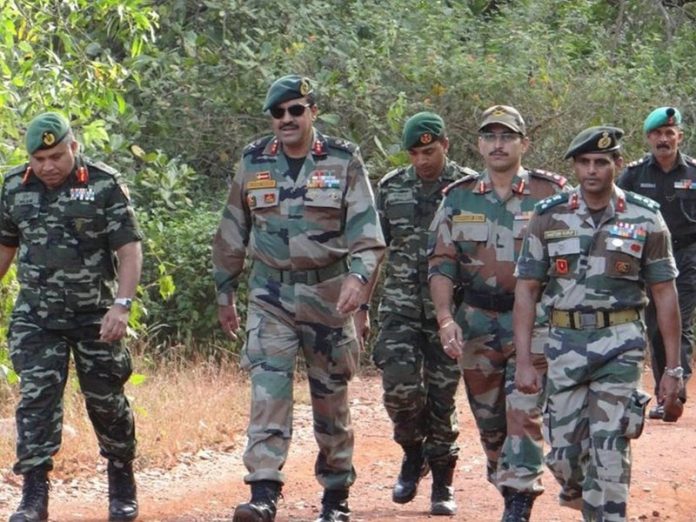Military Operations carried out During Indira Gandhi Govt.
Operation Woodrose was a military operation carried out by the Indira Gandhi-led Indian government in the months after Operation Blue Star to “prevent the outbreak of widespread public protest” in the state of Punjab. The government arrested all prominent members of the largest Sikh political party, the Akali Dal, and banned the All India Sikh Students Federation, a large students’ union. In addition, the Indian Army conducted operations in the countryside during which thousands of Sikhs, overwhelmingly young men, were detained for interrogation and subsequently tortured. After the operation, the central government was criticized for using “draconian legislation” to repress a minority community.
Operation Blue Star was an Indian military operation which occurred between 3 June and 8 June 1984, ordered by Prime Minister Indira Gandhi in order to establish control over the Harmandir Sahib Complex in Amritsar, Punjab, and remove Jarnail Singh Bhindranwale and his armed followers from the complex buildings. Bhindranwale had earlier taken residence in Harmandir Sahib and made it his headquarters in April 1980.
Operation Pawan was the codename assigned to the operation by the Indian Peace Keeping Force (IPKF) to take control of Jaffna from the Liberation Tigers of Tamil Eelam (LTTE), better known as the Tamil Tigers, in late 1987 to enforce the disarmament of the LTTE as a part of the Indo-Sri Lanka Accord. In brutal fighting lasting about three weeks, the IPKF took control of the Jaffna Peninsula from the LTTE, something that the Sri Lankan army had tried but prevented mainly due to Indian political interventions. Supported by Indian Army tanks, helicopter gunships and heavy artillery, the IPKF routed the LTTE, at the cost of 214 soldiers.
East Pakistan Air Operations incorporate the interdiction, air defense, ground support, and logistics missions flown by the Indian Air Force and the Bangladesh Air Force in support of the advancing Mukti Bahini (called Operation Cactus Lilly) in the eastern theater of the Indo-Pakistani conflict of 1971. Although the first of the engagements between the opposing airpowers occurred before the formal declaration of hostilities, the events described below include only those conducted after the declaration of war. The Indian Air force also helped the Mukti Bahini organize a formation of light aircraft (called Kilo flight) which were manned and serviced by Bengali pilots and technicians who had defected from the Pakistani Air Force.




















